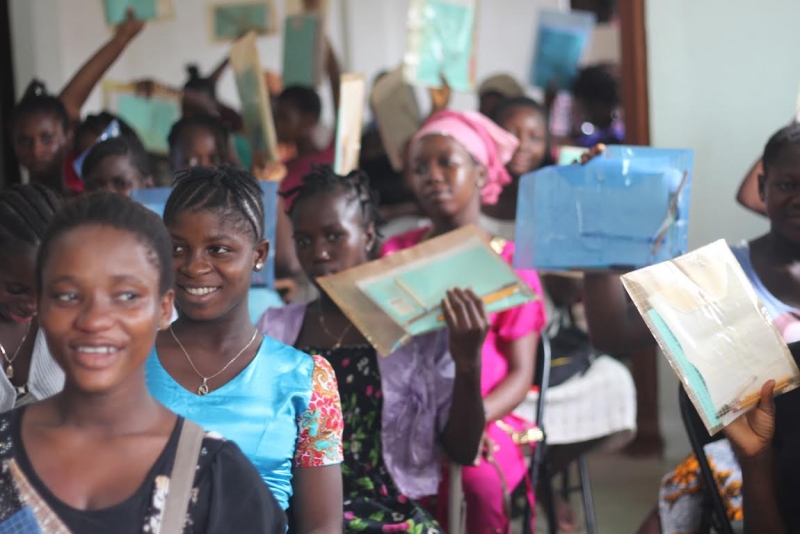 Before Ebola (prior to June 2014), 1/3 of pregnancies in Sierra Leone were teenage pregnancies. Experts believe that rate has increased in the wake of Ebola. During Ebola (from September 2014 to April 2015), schools were closed. The girls were out of school – and consequently more vulnerable to rape, sexual assault and being taken advantage of.
Before Ebola (prior to June 2014), 1/3 of pregnancies in Sierra Leone were teenage pregnancies. Experts believe that rate has increased in the wake of Ebola. During Ebola (from September 2014 to April 2015), schools were closed. The girls were out of school – and consequently more vulnerable to rape, sexual assault and being taken advantage of.
Sierra Leone is a conservative society. Girls in this culture typically are reluctant to attend school when pregnant. They prefer not to do so for several reasons - including that they could be teased and ridiculed. The society in general also frowns on teenage pregnancy and people are not disposed to having pregnant girls in school.
Consequently, when schools reopened in April 2015, the government decided that visibly-pregnant girls would not be allowed to resume classes or continue their schooling. Consequently, pregnant girls are out of school - at least in the short term. Additionally, after giving birth, these girls are facing a situation where they are adjusting to a new dimension of life with a new baby. Many of them are finding it difficult to return back to regular schooling - as they have to care for their young babies at home. In many instances, the families is not in a financial position to employ paid help to take care of the young babies or send the kids to a child care facility. Consequently, the educational progress of these girls is placed on hold indefinitely. Many of these girls are at grave risk of dropping out of school permanently.
The government is very sympathetic to the situation that these girls find themselves in. The President has pointed out that there should be a bridging solution to put pregnant girls through an educational system to help care for themselves.
Short and Long Term Impact of the Disruption of Their Education:
- The pregnancy of these deserving girls will bar them from completing their education and going on to school.
- Illiteracy and unemployment and poverty could continue to increase in short and long term.
- They will miss out on schooling during the crucial final years of secondary / high school education.
- Their future employment opportunities will be adversely and negatively affected.
We are responding to this situation by providing an alternative educational experience for these girls. We are providing them with career and pycho-social counseling, coaching in literacy and numeracy, basic computer training and access to video tutorials. Through these materials and services, the girls are making steady educational progress. We are providing training on a wide-range of topics for teenage pregnant girls or teenage girl-mothers whose children are less than 1 year old.
In October / November 2015, we will be launching a computer lab where we will provide basic computer training
- The networked computer lab will provide access to both curriculum materials and video tutorials.
- We will also provide access to selected subscription-only online training resources.
- The progress of each girl will be monitored individually to ensure progress.
- Each girl will be provided with a transportation stipend and lunch to ensure that they attend for a minimum of 4 hours a day, twice a week.
- Each girl will receive individual coaching and psychosocial support
